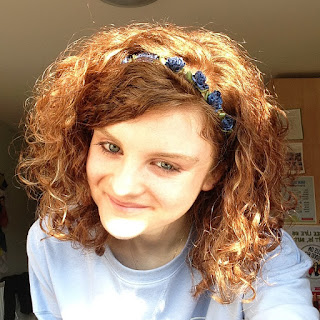India, having suffered from depression and anxiety, uses a letter to explain how it helped her in overcoming her mental health issues.
- India Croot
Dear Mother,
I have woken this morning with the courage to write to you. I feel like your mind must be troubled and confused by questions. There are two I hear you cry more than any others: ‘where have you gone?’ and ‘how do I get you back?’. It often feels like you ask me these as you stare into my eyes. It is hard to physically speak, to give you the answers to your questions, when I have no idea myself. So today, I will walk with you through how it feels each morning. Hopefully one day soon I will speak these words that I write, but for now, this is all I can do, and I do this because I want to ease your pain and help you understand the isolating and overwhelming feeling of struggling with my mental health difficulties. I feel scared that my feelings will start to creep over you and be a burden to you; this alone gives me the strength to fight.
Mornings feel hardest for me. It gets a little easier from there; I rub my eyes, propping my eyelids up as I do. Now I calculate, how many hours I will have to spend away from my bed today. It is not my bed I have an attachment to. It’s the hours in between that are exhausting; performing a 10-hour show each day is draining. It makes studying and socialising at university so hard. I feel emotionless. Every smile or laugh I present to my classmates today, has been rehearsed, ready for the live show. I begin to examine my room, my usual routine. Setting my mind on a task ensures I have no time to reminisce the past and become consumed by my difficult feelings. I scan the walls, ceiling and floor; searching for a minor detail I may have missed the previous morning.
Today a newly structured cobweb that hangs proudly has caught my eye. Such a simplistic task can provide me with such excitement. I wish I could focus and get excited like this on my studies. My eyes are transfixed, gazing into the air, focusing on nothing; it feels as if I’ve created a defence mechanism to shield myself against any thoughts or sounds that could trigger a landslide of feelings.
I haul myself from my bed; I have to get ready for uni. Thinking about every move I make; I lug my feet towards the shower. I’m unaware of how many precious moments I spend in here. I clock into autopilot and wash my hair and face, without fully acknowledging what I’m doing; it’s part of my routine. It’s only when the water runs cold that my body awakens, jolting forward to escape the shock. My day has begun. Whereas ‘getting ready’ to go to class used to feel simple, fluent, completed within half an hour, now an hour passes and it feels as if I’ve been frozen in time. I’m late for uni again. I reach for the pale-colored bag that sits on my dressing table blending into the cream wood. Inside is my identity, well the identity I wear most days for my peers. The Rimmel London foundation is my mask that hides the dark circles that lay beneath my eyes.
But even as I write this letter to you, it helps me to feel less hopeless and alone. By sharing how I feel and helping others to understand just how overwhelming every day can be when struggling with mental health issues, I feel better and more hopeful for my recovery. Opening up about my experiences through writing can be the first brave step for me to open up and reflect on these difficult feelings, help others to understand how much I am struggling, and get the support that I need for my recovery.
If you're feeling a similar way or want to find out more about depression or anxiety, you can find support here.
 I'm India, a third-year journalism student at Falmouth University. I started battling with mental health at the age of 15 after a family trauma. I found coping mechanisms through writing and traveling and I no longer suffer at the hands of depression. We are all subjected to 'bad days' but I now know how to control them. I hope sharing my experience helps those still in a dark place.
I'm India, a third-year journalism student at Falmouth University. I started battling with mental health at the age of 15 after a family trauma. I found coping mechanisms through writing and traveling and I no longer suffer at the hands of depression. We are all subjected to 'bad days' but I now know how to control them. I hope sharing my experience helps those still in a dark place.
- India Croot
Dear Mother,
I have woken this morning with the courage to write to you. I feel like your mind must be troubled and confused by questions. There are two I hear you cry more than any others: ‘where have you gone?’ and ‘how do I get you back?’. It often feels like you ask me these as you stare into my eyes. It is hard to physically speak, to give you the answers to your questions, when I have no idea myself. So today, I will walk with you through how it feels each morning. Hopefully one day soon I will speak these words that I write, but for now, this is all I can do, and I do this because I want to ease your pain and help you understand the isolating and overwhelming feeling of struggling with my mental health difficulties. I feel scared that my feelings will start to creep over you and be a burden to you; this alone gives me the strength to fight.
Mornings feel hardest for me. It gets a little easier from there; I rub my eyes, propping my eyelids up as I do. Now I calculate, how many hours I will have to spend away from my bed today. It is not my bed I have an attachment to. It’s the hours in between that are exhausting; performing a 10-hour show each day is draining. It makes studying and socialising at university so hard. I feel emotionless. Every smile or laugh I present to my classmates today, has been rehearsed, ready for the live show. I begin to examine my room, my usual routine. Setting my mind on a task ensures I have no time to reminisce the past and become consumed by my difficult feelings. I scan the walls, ceiling and floor; searching for a minor detail I may have missed the previous morning.
Today a newly structured cobweb that hangs proudly has caught my eye. Such a simplistic task can provide me with such excitement. I wish I could focus and get excited like this on my studies. My eyes are transfixed, gazing into the air, focusing on nothing; it feels as if I’ve created a defence mechanism to shield myself against any thoughts or sounds that could trigger a landslide of feelings.
Today a newly structured cobweb that hangs proudly has caught my eye. Such a simplistic task can provide me with such excitement. I wish I could focus and get excited like this on my studies. My eyes are transfixed, gazing into the air, focusing on nothing; it feels as if I’ve created a defence mechanism to shield myself against any thoughts or sounds that could trigger a landslide of feelings.
I haul myself from my bed; I have to get ready for uni. Thinking about every move I make; I lug my feet towards the shower. I’m unaware of how many precious moments I spend in here. I clock into autopilot and wash my hair and face, without fully acknowledging what I’m doing; it’s part of my routine. It’s only when the water runs cold that my body awakens, jolting forward to escape the shock. My day has begun. Whereas ‘getting ready’ to go to class used to feel simple, fluent, completed within half an hour, now an hour passes and it feels as if I’ve been frozen in time. I’m late for uni again. I reach for the pale-colored bag that sits on my dressing table blending into the cream wood. Inside is my identity, well the identity I wear most days for my peers. The Rimmel London foundation is my mask that hides the dark circles that lay beneath my eyes.
But even as I write this letter to you, it helps me to feel less hopeless and alone. By sharing how I feel and helping others to understand just how overwhelming every day can be when struggling with mental health issues, I feel better and more hopeful for my recovery. Opening up about my experiences through writing can be the first brave step for me to open up and reflect on these difficult feelings, help others to understand how much I am struggling, and get the support that I need for my recovery.
If you're feeling a similar way or want to find out more about depression or anxiety, you can find support here.
If you're feeling a similar way or want to find out more about depression or anxiety, you can find support here.
 I'm India, a third-year journalism student at Falmouth University. I started battling with mental health at the age of 15 after a family trauma. I found coping mechanisms through writing and traveling and I no longer suffer at the hands of depression. We are all subjected to 'bad days' but I now know how to control them. I hope sharing my experience helps those still in a dark place.
I'm India, a third-year journalism student at Falmouth University. I started battling with mental health at the age of 15 after a family trauma. I found coping mechanisms through writing and traveling and I no longer suffer at the hands of depression. We are all subjected to 'bad days' but I now know how to control them. I hope sharing my experience helps those still in a dark place.







